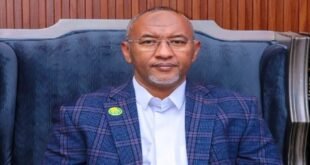09-08-2023
BRASILIA/ BELEM: This week, delegates arriving in Belem’s international airport are being welcomed with a lively “Boi de mascara” folkloric dance routine. In fact, the whole city is celebrating being in the spotlight, playing host to the Amazon Summit.
 It also feels like a bit of a warm-up for 2025 when the city will host COP30. These two events are a big deal for this part of Brazil, a region that often feels forgotten. Belem is well placed too, as the capital of Para, the state with the highest deforestation rate in Brazil.
It also feels like a bit of a warm-up for 2025 when the city will host COP30. These two events are a big deal for this part of Brazil, a region that often feels forgotten. Belem is well placed too, as the capital of Para, the state with the highest deforestation rate in Brazil.
President Luiz Inacio Lula da Silva called this summit to bring together the eight South American countries who share a slice of the Amazon.
It is the first time in 45 years that there has been a meeting like this, ensuring a regional response to combat crime and deforestation as well as climate change.
“I think the world needs to look at this meeting in Belem as a milestone,” President Lula told media last week.
“I’ve participated in several meetings and many times they talk, talk, talk, approve a document and nothing happens. This meeting is the first great opportunity for people to show the world what we want to do.”
President Lula has promised to reverse rising deforestation seen under his predecessor, Jair Bolsonaro. In July this year, deforestation fell 66% compared with the same month in 2022, and Lula says he is committed to zero deforestation by 2030.
 “You have no idea how much pressure there was in our community from the Bolsonaro government,” says Robson Gonçalves Machado, a resident of a community by the Acangata River. “Landowners circling in planes, soya farmers wanting to buy the land to deforest it.”
“You have no idea how much pressure there was in our community from the Bolsonaro government,” says Robson Gonçalves Machado, a resident of a community by the Acangata River. “Landowners circling in planes, soya farmers wanting to buy the land to deforest it.”
Robson lives on the banks of one of hundreds of waterways that wind their way through Ilha do Marajo.
Marajo is the world’s largest river island and sits on the northern coast of Brazil near Belem, the easternmost part of the Amazon.
The only way to get to Robson’s community is by boat – 13 hours overnight from Belem. It may feel isolated, but he is definitely aware of the demand there is for their land from outsiders.
While Para is well known as the epicentre of Brazil’s deforestation, more recently it has also become an appealing prospect for another burgeoning forest industry – carbon credits. (Int’l Monitoring Desk)
 Pressmediaofindia
Pressmediaofindia




